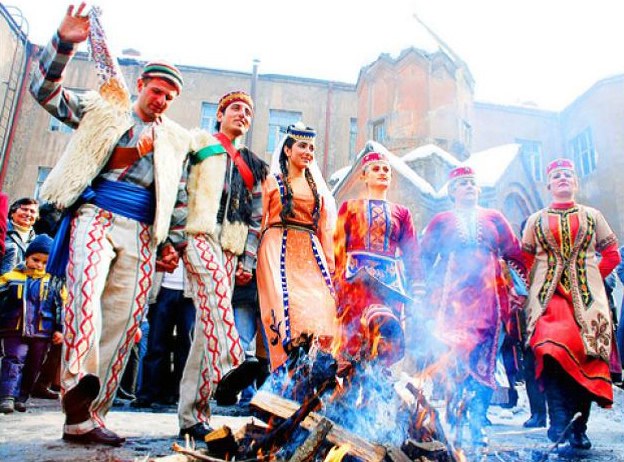Azg
Friendly big family, "Azg", with a strict hierarchy of the unchanged compound of the Armenian society. Reverence and respect for elders, each child takes from infancy, watching the relationships of all family members. So, everyone clearly knows and performs his duties.
In Armenian families ("ojakh" hearth), the senior always care about the younger and younger I sincerely respect your elders. This cohesion occurs not only in a particular genus, but also among people in General. Wherever Armenians ends, they will always find compatriots and will maintain strong ties.
Tasib
The second national characteristic of the Armenian people, "tasib" - generosity and endless hospitality. Despite his temperament and temper, the Armenians are welcoming hosts. Regardless of guest status, he was surrounded by attention and honors. Everyone here is happy to give shelter or provide lodging. Covering a wide table, put up the best treats, and if the income of the family does not allow that, come to the aid of sympathetic neighbors. Offering treats, usually say: "eat the bread", instead of the usual "go to lunch".
Barev
At the meeting, the Armenians say: "Barev dzez!" - "Hello!". Or Material set argeli!" where "argali" - "dear". But most use a shortened form: "barev" or "voghjuyn", "Hello" and "voices?" "how are you?" or "barev voices?" "Hello, how are you?".
Between close friends there is also: "Voices Achper Jung?!" "How are you brother?" or "Voices Couric Jung?!" "How are you SIS?!".
Welcoming the familiar girl, sometimes I say: "Voices Sirun dzhyan!", where "sirun" means "beautiful". Turning to the child, adults usually say: "Barev ahcich Jan" or "Barev Jan TGA", where "ahcich" - "girl", and "TGA" - "boy".
The form of greeting also varies depending on the time of day. Morning greeting sounds like "Bari Luys" ("light" is the light. During the day you can hear the expression, "Bari or" - reminiscent of our "good day". Meet in the sunset, saying: "Bari, ereko".
After phrases of greetings Armenian will inquire: "Inch ka chka?", in rough translation - "what's the news, what's new?". And not only exhibit modest a keen interest in your words, but will ask about all the members of your family. And only then gently turn to the discussion of such question or take a request, if any.
